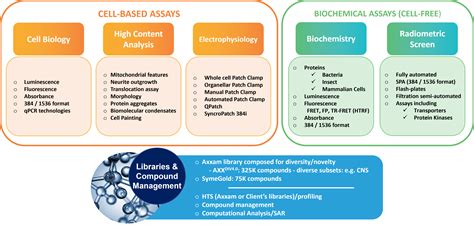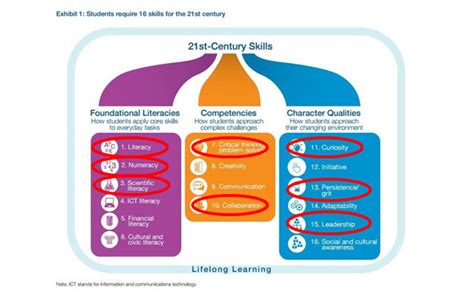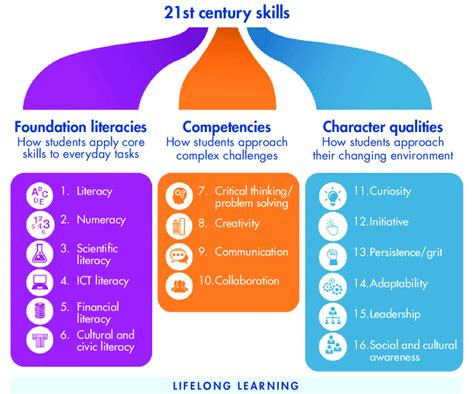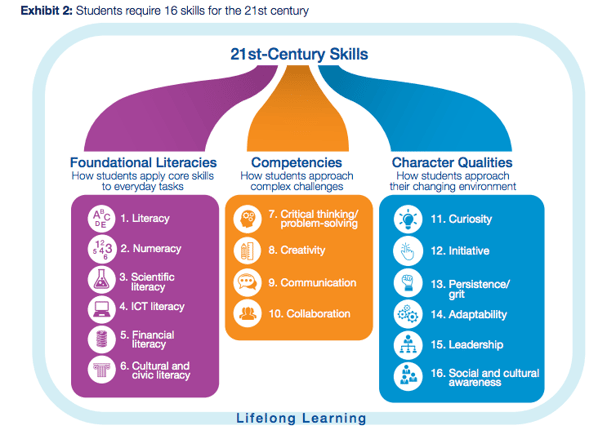In the fast-paced and ever-evolving world of the 21st century, thriving requires more than just technical skills and knowledge. It demands a holistic approach to personal development, where mindfulness and well-being play crucial roles. This article explores essential skills for navigating the complexities of modern life, focusing on emotional intelligence, stress management, adaptive learning, and more. By embracing these practices, individuals can enhance their mental, emotional, and physical well-being, leading to a more balanced and fulfilling life. Whether you’re striving for success in your career or personal life, these skills are key to thriving in today’s world.
Explore this topic thoroughly with terylblog.com
1. Emotional Intelligence Development
Emotional intelligence (EI) is the cornerstone of thriving in the 21st century. It involves understanding and managing your emotions while recognizing and influencing the emotions of others. Developing EI begins with self-awareness, the ability to accurately perceive your emotions and how they influence your thoughts and actions. This awareness allows you to manage emotions effectively, helping you navigate stressful situations with composure and make more thoughtful decisions.
Empathy, another critical component of EI, enables you to understand and share the feelings of others, fostering stronger relationships and improving communication. In today’s interconnected world, where collaboration and teamwork are often key to success, high emotional intelligence can set you apart.
Building emotional intelligence also involves improving social skills, such as active listening, clear communication, and conflict resolution. These skills are essential in both personal and professional settings, enabling you to connect with others meaningfully and manage relationships effectively.
By prioritizing the development of emotional intelligence, you can enhance your ability to cope with challenges, build stronger connections, and lead a more fulfilling and balanced life in the modern era.

2. Stress Management Techniques
In the demanding landscape of the 21st century, mastering stress management is vital for maintaining well-being and productivity. Effective stress management techniques start with understanding your stress triggers and learning how to respond to them constructively. Practicing mindfulness, such as through meditation or deep-breathing exercises, can help you stay grounded in the present moment, reducing anxiety and enhancing focus.
Physical activities like yoga or regular exercise are also powerful tools for alleviating stress, as they release endorphins that naturally improve your mood. Additionally, incorporating short breaks into your daily routine can prevent burnout, allowing you to recharge and approach tasks with renewed energy.
Another essential aspect of stress management is setting boundaries, both in your personal and professional life. Learning to say no and delegating tasks can reduce overload, giving you more control over your time and responsibilities. By integrating these techniques into your life, you can effectively manage stress and maintain a healthier, more balanced lifestyle.

3. Adaptive Learning Strategies
In the rapidly changing world of the 21st century, the ability to learn and adapt is crucial for success. Adaptive learning strategies empower individuals to continuously grow, evolve, and stay relevant in their personal and professional lives. These strategies involve recognizing that learning is a lifelong process and that flexibility is key to mastering new skills and knowledge.
One effective approach is embracing a growth mindset, which encourages viewing challenges as opportunities to learn rather than obstacles. This mindset fosters resilience and a willingness to explore new ideas and methods. Personalized learning, where you tailor your learning experiences to your unique strengths and needs, is another powerful strategy. Utilizing online courses, workshops, and other resources allows you to learn at your own pace, focusing on areas that require improvement.
Collaborative learning, such as engaging in group discussions or working on projects with others, can also enhance your adaptability by exposing you to diverse perspectives. By integrating these adaptive learning strategies, you can thrive in an ever-evolving environment, staying ahead of the curve and continually enhancing your skill set.

4. Digital Detox Practices
In a world where digital devices dominate our daily lives, practicing digital detox is essential for maintaining mental clarity and overall well-being. Constant exposure to screens can lead to stress, anxiety, and even burnout, making it crucial to establish boundaries with technology. Digital detox practices involve consciously disconnecting from digital devices to recharge and reconnect with the present moment.
Start by setting specific times during the day to unplug, such as during meals, before bedtime, or while spending time with loved ones. These intentional breaks from technology allow your mind to relax and reduce the cognitive load associated with constant connectivity. You can also designate “tech-free zones” in your home, like the bedroom or dining area, to create spaces that encourage face-to-face interactions and relaxation.
Engaging in offline activities, such as reading a book, going for a walk, or practicing a hobby, can further enhance the benefits of a digital detox. These activities promote mindfulness and help you reconnect with yourself and your surroundings. By regularly incorporating digital detox practices into your routine, you can achieve a healthier balance between your digital and offline worlds, leading to improved focus, reduced stress, and a more fulfilling life.
5. Mindful Communication Skills
Mindful communication is a powerful skill that enhances relationships, fosters understanding, and reduces conflict in both personal and professional settings. It involves being fully present and engaged during interactions, allowing you to communicate more effectively and empathetically. Practicing mindful communication starts with active listening, where you focus entirely on the speaker, without planning your response or getting distracted by external factors.
Another key aspect is using nonjudgmental language, which involves expressing your thoughts and feelings without placing blame or making assumptions. This approach encourages open and honest dialogue, creating a safe space for others to share their perspectives. Being aware of your body language and tone of voice also plays a significant role in mindful communication, as these nonverbal cues can significantly impact the message you’re conveying.
Pausing before responding allows you to choose your words carefully, ensuring that your communication is thoughtful and considerate. By integrating mindful communication skills into your daily interactions, you can build stronger, more meaningful connections, reduce misunderstandings, and create a more harmonious environment in both your personal and professional life.
6. Work-Life Balance Approaches
Achieving a healthy work-life balance is essential for maintaining overall well-being and preventing burnout in the fast-paced 21st century. Effective work-life balance approaches begin with setting clear boundaries between work and personal time. This can involve establishing specific work hours and sticking to them, ensuring that work does not encroach on your personal life.
Prioritizing tasks and learning to delegate can also help manage workload and free up time for personal pursuits. Time management techniques, such as breaking tasks into smaller, manageable steps, can increase efficiency and reduce the feeling of being overwhelmed.
Incorporating regular self-care practices, like exercise, hobbies, or spending time with loved ones, is crucial for recharging and maintaining energy levels. Additionally, creating a supportive work environment that encourages flexibility, such as remote work options or flexible hours, can greatly enhance work-life balance.
By adopting these approaches, you can create a more sustainable and fulfilling lifestyle, where work and personal life complement each other rather than compete for your time and energy.
7. Resilience Building Exercises
Building resilience is key to navigating the ups and downs of modern life with confidence and strength. Resilience-building exercises focus on developing mental and emotional flexibility to effectively handle stress and adversity. One effective exercise is practicing gratitude. Regularly reflecting on what you’re thankful for helps shift your perspective from focusing on problems to recognizing positive aspects of your life. This practice can enhance your overall resilience by fostering a more optimistic outlook.
Another valuable exercise is engaging in problem-solving activities. Challenging yourself with puzzles or strategic games stimulates cognitive flexibility and enhances your ability to approach difficulties with creative solutions. Additionally, setting and achieving small, manageable goals can build confidence and demonstrate that you can overcome obstacles, further reinforcing your resilience.
Mindfulness meditation is also crucial for building resilience. By cultivating awareness of the present moment and learning to accept rather than resist challenging emotions, you can improve your emotional regulation and stress response. Regular physical activity, such as walking, jogging, or yoga, contributes to resilience by reducing stress and boosting mood.
Connecting with a supportive network of friends, family, or colleagues provides emotional support and encouragement, which is vital for resilience. By integrating these exercises into your routine, you can strengthen your ability to cope with challenges and maintain a balanced, resilient mindset.
8. Holistic Self-Care Practices
Holistic self-care practices address the well-being of the whole person—mind, body, and spirit—promoting overall health and balance. These practices begin with physical self-care, which includes regular exercise, a balanced diet, and adequate sleep. Engaging in physical activity not only improves fitness but also boosts mood and reduces stress. A nutritious diet supports physical health and cognitive function, while sufficient sleep is crucial for recovery and mental clarity.
Mental self-care involves activities that support emotional and cognitive health, such as mindfulness meditation, journaling, or engaging in creative hobbies. These activities help manage stress, enhance self-awareness, and foster a sense of purpose and fulfillment.
Spiritual self-care, though personal and varied, might include practices such as meditation, reflection, or connecting with nature. These practices help cultivate inner peace, a sense of connection, and alignment with personal values.
Integrating these holistic self-care practices into your daily routine can lead to a more balanced, resilient, and fulfilling life, enhancing your ability to navigate the demands of modern living with grace and well-being.
Incorporating these essential skills—emotional intelligence, stress management, adaptive learning, digital detox, mindful communication, work-life balance, resilience, and holistic self-care—into your daily life can profoundly enhance your well-being and success in the 21st century. By focusing on these practices, you create a balanced approach to personal growth and resilience, enabling you to thrive amidst the challenges and opportunities of modern living.
terylblog.com
